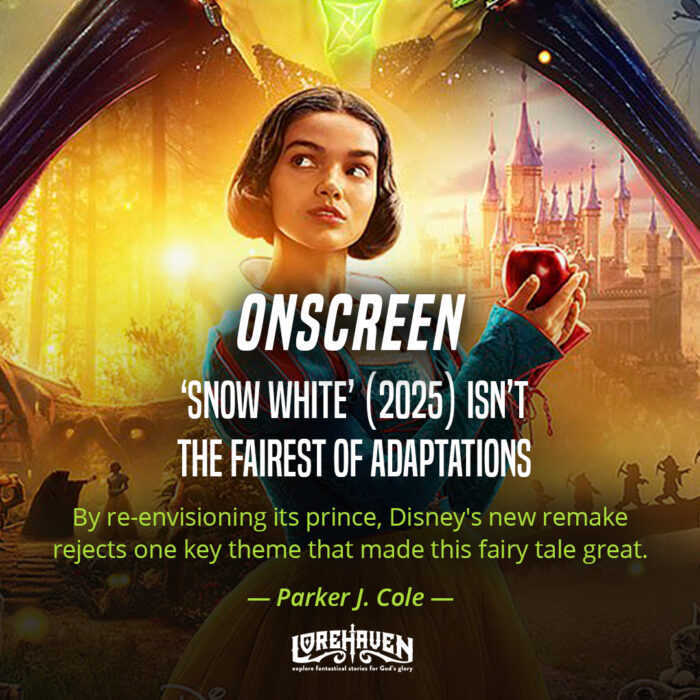The Road Not Taken
 Back at the tail end of 1998, my buddy John Olson and I began thinking about writing a novel about Mars. Why Mars?
Back at the tail end of 1998, my buddy John Olson and I began thinking about writing a novel about Mars. Why Mars?
Because it looked to us like humans might finally be on the road to the Red Planet again after decades of mucking around in low earth orbit doing not much of anything.
In 1998, it was clear, of course, that no new space initiatives would happen while Bill Clinton was still in office. Clinton had other fish to fry, and with only two years left in his term, there was no way he’d try to sponsor a grand mission to Mars.
But we knew there would be a new president elected in 2000. Democrat or Republican, the new guy would want to make a splash, and with the economy humming, that splash might actually involve something big and bold and expensive.
Like going to Mars.
So John and I began doing research and laying out a vision for our book. We focused on the ideas of Dr. Robert Zubrin, the feisty and iconoclastic leader of the Mars Society. Zubrin had some very innovative plans for going to Mars.
“Travel light” was Zubrin’s motto. If you can use the natural resources on Mars to help you get home, then you don’t need to take as much stuff with you. The lighter you can travel, the cheaper you can go, and the less risk you’ll run.
What natural resources? Carbon dioxide, for one. The Martian atmosphere is mostly carbon dioxide. If you took a bit of hydrogen with you, along with a small nuclear reactor, you could use the nuke to drive a small chemical factory to combine your hydrogen with the native carbon dioxide to produce methane and oxygen — the fuel you’d need to get yourself off the planet and to take you home to earth.
That was a brilliant idea, and Zubrin spelled out the details in his book THE CASE FOR MARS. John and I thought it could work, and we planned the mission for our novel around Zubrin’s ideas.
Within months, we pitched the idea to Steve Laube, then an editor at Bethany House who was interested in starting a line of science fiction and fantasy. Steve had already signed our friend Kathy Tyers to a series of novels, and he told us that he’d be interested in signing us too, IF our writing was good enough.
That was enough for us. John and I spent much of 1999 researching our book. We went to the Mars Society conference in Boulder, Colorado, where we met Robert Zubrin himself, and literally rubbed shoulders with another space nut who was then working on an idea for a Mars movie — director James Cameron.
Knowing that we were competing with Cameron gave us an underdog status that ignited our efforts. We worked furiously through the fall, writing and rewriting our proposal and sample chapters. Finally, a week before Christmas, we sent in our proposal to Steve.
Less than seven weeks later, we had an offer for our novel, OXYGEN, a novel about the first mission to Mars. We worked through most of the year 2000, eventually writing about fifteen drafts. In May of 2001, the book was published.
By that time, there was a shiny new president in the White House, George Bush. There was also a bit of a recession going on, so it was already clear that the road to Mars would be rockier than we had hoped during the prosperous final years of the Clinton administration.
Even so, we thought there was a decent chance that humans could go to Mars on our timetable, which called for a first unmanned mission in late 2011 and a manned mission in 2014. (Flights to Mars require a lot of fuel, and the transit is easiest roughly every two years when the orbits of the two planets are just right.)
 But the Mars mission never happened.
But the Mars mission never happened.
In September of 2011, terrorists destroyed the Twin Towers and George Bush found himself in a war on terror. A massively expensive war on terror. A war that dragged on for years and years, sucking all oxygen out of the economy and consuming the attention of politicians.
Near the end of the Bush era, the economy fell off a cliff. There simply isn’t any money for a mission to Mars right now. There may not be for a long time.
The road to Mars remains the road not taken.
That raises the question of whether humans will ever go to Mars. There is never going to be a convenient time. The war on terror may drag on for years or decades, like the Cold War, sapping our money and defocusing our efforts.
The crazy thing is that the main problem in going to Mars is not the money. NASA’s current budget is less than 20 billion dollars,
roughly what the US government spends every 48 hours.
If NASA committed itself to a Mars program, we could probably put humans on Mars in ten to fifteen years, without spending anything extra. We’d have to travel light, which is not the usual NASA way, but we could do it.
The main problem in going to Mars is that nobody is willing or able to commit ten or fifteen years of focused effort to going there. Going to Mars is not a decision NASA is allowed to make. That’s a political decision, and politicians are generally looking to the next election. Depending on the politician, that’s two, four, or six years away, at most.
There’s a risk in going to Mars, of course. When you send humans on a trip to another planet, you run the very real risk that they might not come back alive. Heck, if you send somebody on a trip to Safeway, they might not come back alive. In 2010, more than 32,000 people were killed in America in traffic accidents. In the last thirty years, two space shuttle missions have ended in disaster, killing fourteen astronauts.
As yet, nobody has died on the road to Mars, because nobody has ever set foot on the road to Mars.
In our book OXYGEN, we made the mission dangerous because we think it will be dangerous. But we also think it’s worth going.
Why go to Mars?
Nobody can answer that question completely, because we don’t know what we’ll find there.
It’s extremely likely that planetary scientists will learn a lot more about the geological history of Mars, which will tell us something about the development of the solar system over the last 4.5 billion years. And that will very likely tell us new things about our own planet.
It’s also very likely that we’ll be able to figure out whether Mars might make a suitable second home for humans. It’s not a very hospitable place right now, but with some terraforming, it’s plausible that Mars could be a second home for humanity. There’s no way to know unless we go there and see what it’s like.
It’s also quite possible that Mars might teach us something about life. Is there life now on Mars? Probably not. Was there ever life on Mars? That’s hard to say.
Mars is cold and dry and geologically dead now, with a very thin atmosphere. But it wasn’t always that way, and it’s possible that a few billion years ago, Mars might have been home to life.
What kind of life? That’s anybody’s guess.
It’s possible that it’s the same kind of life that flourished in the past on earth. About 500 pounds of Martian rocks fall onto earth every year, as a result of meteorites that smash into Mars occasionally. Some of these rocks could bring life from Mars to earth. And it’s possible that rocks (with life) could go the other direction, from earth to Mars. So the Martian tree of life might be part of earth’s tree of life.
But not necessarily. The trip to or from Mars is long, and anything that made the trip alive trapped in rocks would need to be incredibly tough. So that’s a long shot.
If you believe that life evolved on earth, then you presumably believe that life might also have evolved on Mars, and so it makes sense to look for it there to test that idea. If you believe that the odds of life evolving on earth are astronomically low, then you presumably also believe that the odds are astronomically low that life might also have evolved on Mars, and so it makes sense to look for it there to test that idea.
Either way, the search for life on Mars would throw some light on the origin-of-life question.
So should we go to Mars? I think we should. It’s a whole new world, waiting to be explored. We have no more idea what value Mars will be to us than Columbus had of the value of the New World when he stumbled across it in 1492. The only way to know is to go.
The main question is how to get there, when no government seems willing to make a commitment to a ten or fifteen year program.
Dr. Robert Zubrin recently published an article in the Washington Times that spells out an idea on how the government might foster private enterprise to open up space in a way that could eventually take mankind to Mars.
I have no idea if any government is going to act on Zubrin’s idea. Mars sounds so far away and so impossible that most people in government just aren’t interested. The road to Mars may remain the road not taken for a very long time.
 In the meantime, we can dream.
In the meantime, we can dream.
Final note: Our book OXYGEN won a Christy award in 2002. It was also named to the New York Public Library’s list of “Books for the Teen Age” — a list of books considered by the library to be excellent reading for teens. We’ll be republishing OXYGEN soon as an e-book, and it will also be republished on paper this fall through Marcher Lord Press.
– – – –
 Randy Ingermanson is the award-winning author of six novels. He is a computational physicist with a Ph.D. in physics from UC Berkeley.
Randy Ingermanson is the award-winning author of six novels. He is a computational physicist with a Ph.D. in physics from UC Berkeley.
Randy writes about life at “the intersection of Science Avenue and Faith Boulevard” — a poorly lit section of town where there are plenty of fights and accidents. Randy is best known around the world as “the Snowflake Guy” for his widely used “Snowflake method” of designing a novel. His most recent book is WRITING FICTION FOR DUMMIES. You can find Randy online at his personal site or Advanced Fiction Writing.





































I’m not sure if I like the ideas of a Mars mission–I’d rather keep my imagination about Mars then see what it’s really like…
Perhaps, because we already know so much about what Mars is like — and unlike previous imaginations of it being a canal-ridden wonderland — our imaginations would simply be changed after a manned mission. We could either:
Alter imaginations about Mars based on what we now know, going deeper into more-challenging yet updated stories about ways the planet could be explored or colonized in the future.
Imagine alternate-universe versions of Mars, supposing the planet really were still wet and fertile, and populated with sentient alien creatures.
A recent and related editorial cartoon that makes me sad:
http://www.worldmag.com/images/content/Ramirez06021.jpg
By the way, to me it seems interesting that for all their talk about being Pro-Science, it was a certain current administration that announced pulling back on the space program and especially manned space exploration. Meanwhile, it was supposed anti-science president “Shrub” who found time in 2004, even during the War on “Terror,” to announce new space-exploration measures, including the space shuttle program’s high-tech successor — which are now pretty much forgotten. Instead we’ve heard how NASA’s main goals are climate science and reaching out to religious groups. Hmm. How interesting that this branch of science has become so inward-focused and selfish.
Christians need to take the lead in pushing for glorifying God through science and space exploration. That can include those of us who believe Mars is 4.5 billion years old or only a few thousand — either way, we have frontiers to explore for God’s glory!
Alas, I fear it will only be on the New Earth that this effort truly leaps forward. Yet I’ve personally found that this has led to at least one fantastic novel including that theme.
I can’t wait until it comes out as an e-book. I’m so getting it!
That is an amazing amount of research you did for Oxygen (I had no idea). Some interesting ideas for why we should go to Mars. Personally, I have a fear of heights, so I’ll be staying here on Earth when it happens, thank you very much 🙂
The book was great, so everyone knows. I still need to read The Fifth Man. 0=)
I personally think the universe exists for us as a bit of a playground. We have more Scriptural foundation in favor of continued exploration and subjugation of the universe than disfavor. I mean, I get it: on the pragmatic end there’s more immediate things that need taking care of. But curiosity is an inherent part of us, and continuously finding new things and naming them is as old as Adam. It’s…who we are.
See, I prefer to think of Malacandra and Perelandra or even the dark oblisk from 2001: A Space Odyssey than Mars and Venus.
Yet when Lewis wrote Malacandra, that was before the first Mars probes but after most were sure Mars wasn’t the kind of world he described, am I right? Perhaps Randy, if he’s around and watching ussss, could share some thoughts. Either way I’m convinced we can still make fantasy stories about Mars, in a parallel-world sort of way — exactly as I think today of the Space Trilogy versions of other planets.
Interesting article. I loved Oxygen and The Fifth Man. However it saddens me that I have to rip so many pages out of God’s Word – the six days of creation
(including all the creation Scriptures, even Jesus own words) and the genealogy of Adam to Jesus. Should I also remove where the Scripture talks about heaven and hell or God’s wrath and judgment or maybe the miracles like parting of the Red Sea or Jesus raising Lazarus from the grave? I’m sure secular scientists don’t believe any of those things either.
Sad. Really sad.
And we wonder why the church is such bad shape.
I loved “Oxygen.” Great book. And I’m not even much of a sci-fi fan.
I see no reason to doubt the possibility of life other than our own. We serve a Creator who is infinitely imaginative and active. The Bible is the story of our world, our planet, our fall and redemption. Perhaps we really are “the silent planet,” as C.S. Lewis put it, cut off from others by our sin.
Exactly. 0=)
Will hope to have some thoughts about Oxygen and Biblical creation tomorrow.
In short: we need not divide from Christian brothers over the issue, but I think each “side” should feel the freedom both to a) treat origins accounts as the fair territory of Biblical historians, and not only origins scientists’, to offer beliefs about, b) speak frankly, yet in love, about how a Christian brother/sister has, in one’s view, erred in both Biblical exegesis and with understandings of actual, operational science.
I’ve had some tough deadlines the last few days, but have finally made it back here to read comments.
On the question of whether one has to rip out any pages of the Bible in order to be a good scientist, I would like to refer you to John Walton’s book, THE LOST WORLD OF GENESIS ONE.
Walton is a professor at Wheaton College and believes in Biblical inerrancy. The conclusion of his book is that Genesis 1 has nothing to say on the question of the age of the universe, the age of the earth, or even on Darwinism. These questions have to be answered using science, not by a 20th century reading of a text written for a different culture.
I won’t argue this one way or the other, since I’m not a Biblical scholar. But I think an educated Christian these days should be aware of Walton’s book, which has been well-received by reviewers qualified to judge his scholarship.
I realize that Walton’s conclusions don’t make everybody happy. But in my view, Walton’s book is going to reduce the internal tension that a lot of working scientist-Christians feel when they are told by well-meaning people that their faith and their science are necessarily in conflict. This simply isn’t true.
Well, as far as the creation/evolution thing goes, I’ve read Oxygen and don’t recall it ever requiring one position or the other, much less “throwing out the Bible.” That’s a high charge simply unfair and unwarranted in this particular instance.
I guess I wonder how come this field, of origins worldview, ought to be limited only to scientists — who are perhaps delving into less-scientific territory anyway by venturing to guess about unobservable, untestable worldviews about the past, which as their basis (presupposition) rule out God as an active element of their explorations (naturalism).
Here’s theologian Dr. Terry Mortenson, who likely knows more Hebrew and Original Audience Context than all of us, on the Genesis-interpretation issues.
It’s a long article, but I’ve really appreciated its insight — and also its complete lack of over-reactionary “they’re all false teachers and heretics” attitudes. I have seen those, most recently voiced against Tim Keller, a Godly and Gospel-centered teacher who I truly respect and whose work has helped me. But one careful critic noted, the issue is not really about whether one is truly saved (and his organization often gets wrongly maligned as believing that one must accept six-day creation to be a true Christian). Rather it’s about whether we’re consistent: is Scripture trustworthy and authoritative?
Yet I understand that many Christians believe it is authoritative, but also have varying views on Genesis. (That’s likely because of the fact that Christians have forsaken science for too long and are only just now catching up, and that part is our problem, not the Evil Bad Evolutionary Godless Atheistic Scientists’ problem.)
But I’m with Kaci: one doesn’t need to get into that to enjoy the Oxygen series anyway.
In fact, I recall being challenged by several tenets of the novels that originally made me squeamish, as a too-up-tight evangelical-homeschool nerd. 😀 Those parts shouldn’t have brought that reaction, even though I loved the story. By those parts I mean:
Yet since then I came to see more closely that some Christians, despite their true faith and desire to please God and be Biblical, really do misunderstand how God is working to redeem all of His creation, starting today, not just the “spiritual” parts. That includes science and space exploration. (Author Randy Alcorn in his nonfiction book Heaven, which I plug way too much on this site, really helped solidify this for me. By the way, just the other day I saw that Alcorn had endorsed The Fift Man for its first printing — a fact that somehow escaped me before.)
However, even more quickly I accepted this push of my imagination, which was not against Scripture, but against wrong assumptions of where God could have created life. To think that Mars could have had microbial life, or even plants, at some point doesn’t wreck the Gospel or the Earth’s centrality in His revealed plan.
(Sentient, human-like intelligent life, though, that’s a different matter. …)
Anyway, my conclusion: Biblical-creation-believers really ought to be pushing to have a manned mission to Mars just as much as the humanists and evolution-driven scientists are. In fact, with goals of glorifying God by exploring His creation, even in a fallen world, Christians ought to be more eager to encourage this. We don’t even need to worry about the Life question, as others do; shouldn’t it be enough to go there?
Yet as I’ve said, it sadly may not be until the New Earth that we explore that far.
A more-personal note: Randy, it’s great to see you here! I’d like to think, anyway, that I’ve loved your work before it was cool to do so, before you became more popular due to the Snowflake Method and your courses at conferences. It was also you who encouraged me to try ACFW, where I met Stuart Stockton, Becky Miller and many others, and thereby got involved with Speculative Faith’s first incarnation. Four years later I was privileged to help reboot the site, and a year later we’re fledgling once again.
For your role behind the scenes, I not only withdraw “the scenes” here to reveal your identify, but award you 100 internets and a free pass to future Spec-Faith columns. 😀
(More nonfiction-leaning thoughts on the creation-criticism issue in the below link. …)
Where did that link to your life on other planets post go?